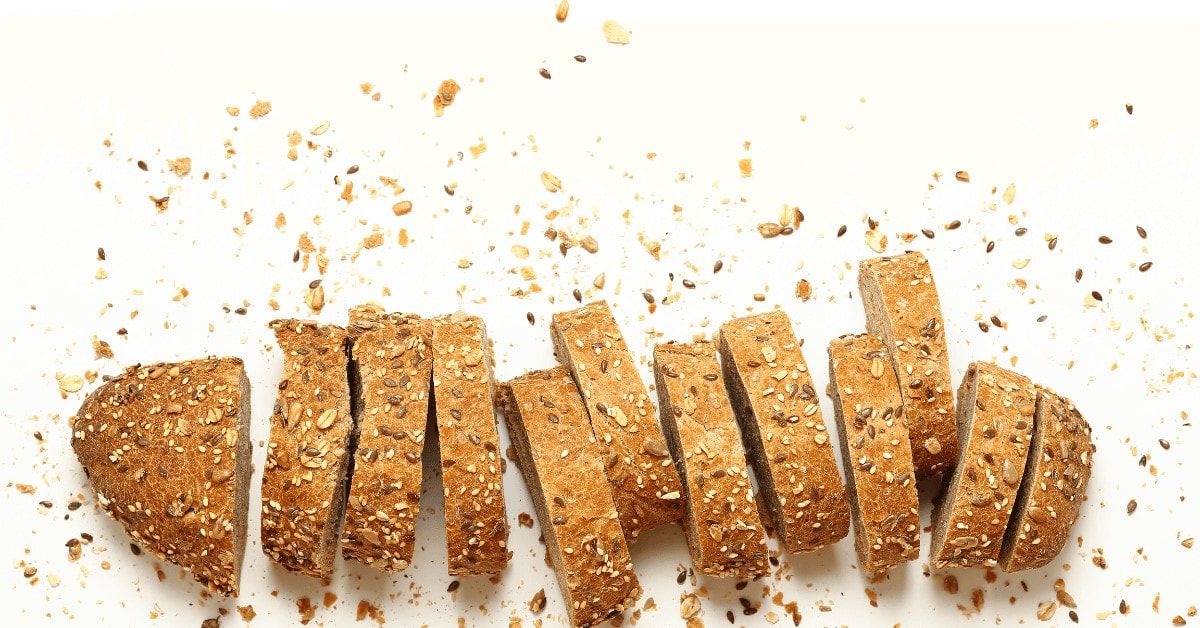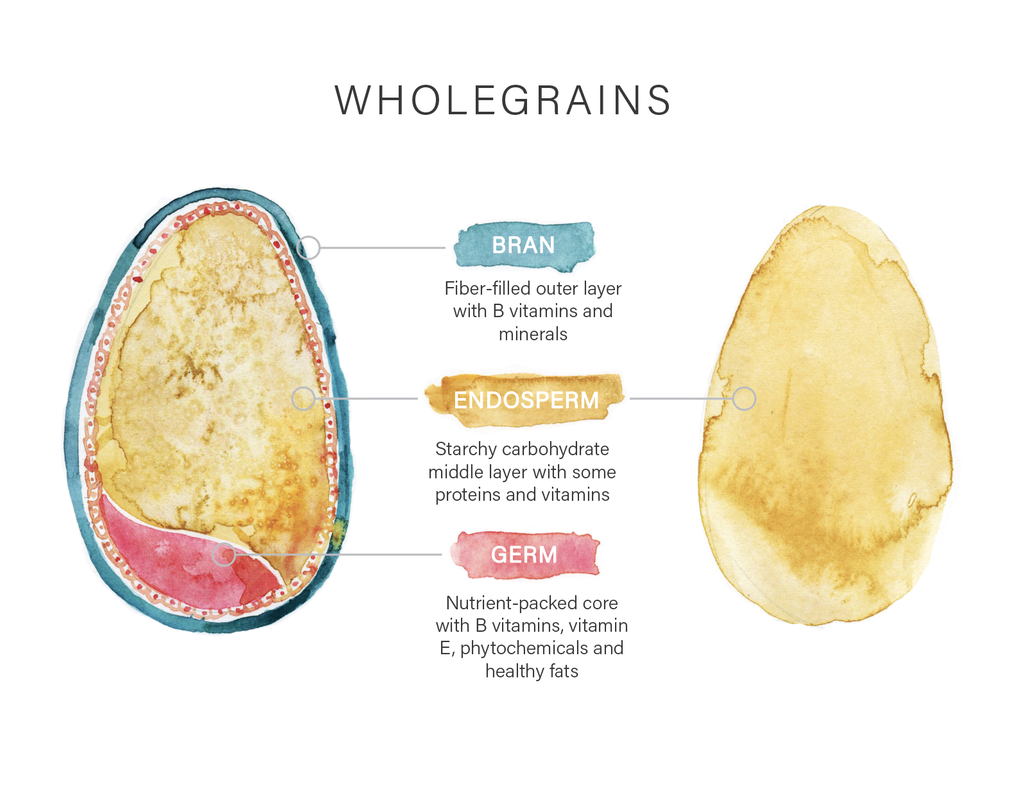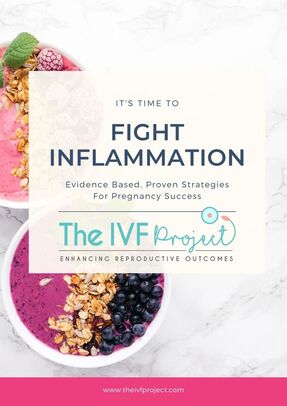|
There is one key diet component that is essential to fuel your fertility: carbohydrates! This may surprise you, as carbohydrates often get a bad rap. Reminiscent of the ‘low fat’ diets of the 80s and 90s, low carbohydrate diets such as Keto, Whole-30 and Paleo are touted as the panacea of health, promising to reduce inflammation and metabolic disruption. Reducing inflammation is positive for fertility, but is lowering carbohydrate the answer? What is Carbohydrate?Before we go any further, let’s just clear up what we mean by carbohydrate. Lots of the confusion surrounding carbohydrate stems from the fact that carbohydrates can be many different things. Carbohydrates are sugars, fibre and starches that can be found in a variety of foods from fruits and wholegrains to lollies. Carbohydrates are the preferred source of energy for your brain and muscles, and without them your gut microbes don’t have a food source to ferment to provide you with fertility loving metabolites like butyrate. The fine print: not all carbohydrates are created equal! We can categorise carbohydrates into two broad groups: simple and complex. Simple CarbohydratesSimple carbohydrates (also called simple sugars) are easily broken down by the body and the glucose is rapidly absorbed into the bloodstream. This produces a rapid and large blood sugar spike upon digestion. What goes up must come down, however, so following a blood sugar spike your body will also go through a relative low. A lot of these roller coaster peaks and troughs in blood sugar is correlated with inflammation in the body and the brain (1-3). Processed sources of simple carbohydrates often have the nutrients such as fibre, vitamins and minerals removed or reduced. You will recognise foods with this type of carbohydrate as they are high in energy, high in refined sugars (like white sugar, honey and fruit juice), high in refined grains (white flour), low in nutrients, low in fibre, high in sodium content and could be high in saturated fat, cholesterol and trans fats. Essentially you get less nutritional bang for your buck with simple carbohydrates. Examples of simple carbohydrates are sugar, honey, agave nectar, maple syrup, high fructose corn syrup, rice malt syrup, refined (white) flour, fruit juice, soft drinks, biscuits, lollies, cakes, chips, sugary breakfast cereals, white bread and wraps. Reducing your intake of refined sources of simple carbohydrate is a win for your fertility. Complex CarbohydratesComplex carbohydrates are made up of more complex sugars strung together in long chains. Compared to simple carbohydrates, foods with complex carbohydrates are packed with more nutrients, vitamins, minerals and fibre. This beneficial carbohydrate is often found in whole foods - foods that have not been overly processed or turned into something that you don’t recognise anymore. Whole foods with complex carbohydrates (fibre and starches) include: wholegrains, brown rice, vegetables, fruit, nuts and seeds, beans and legumes. You will recognise them as they contain low to moderate energy, have a high nutrient content, have no refined sugars or grains, are naturally high in fibre, low in sodium (salt) and have low to no saturated and trans fats. Fibre and starch are two types of complex carbohydrates. Starches are naturally occurring in breads, cereals, starchy vegetables (peas, corn, beans, and potatoes), legumes and wholegrains. Starches will be found with fibre, although some foods have more fibre than starch. Fibre is naturally found in fruits, vegetables, legumes, nuts, seeds and wholegrains. Complex carbohydrates feed beneficial bacteria in your gut microbiota that can enhance your fertility by lowering inflammation, increasing your gut diversity, and reducing dysbiosis. To achieve a fertile gut you need to include complex carbohydrates in your diet that will feed those bacteria who are responsible for looking after you. They can’t do it without you! Wholegrains – a Whole Lotta GoodnessWholegrains are one of the most important carbohydrates for fertility. In Australia, wholegrains are grain foods that have not been processed or refined. Wholegrains have not had their outer bran or germ layers removed, and therefore contain an abundance of nutrients that support fertility. They contain more fibre, vitamins, minerals and antioxidants than their refined versions (e.g. white bread). Wholegrain intake has been associated with better antioxidant defenses and reductions in inflammation, as well as better blood glucose regulation (good news for polycystic ovarian syndrome (PCOS)-related insulin resistance) (4). Wholegrain consumption has also been shown to increase the production of fertility-promoting compounds by the gut microbiota (5) and a higher preconception intake of wholegrains has been associated with thicker endometrium for implantation and increased live birth rates following IVF (4). Wholegrain examples include wholewheat, rice (brown, black), corn (including popcorn), oats, barley, spelt, rye, sorghum, millet and pseudo grains such as buckwheat, quinoa, wild rice and amaranth. Wholegrains Reduce InflammationWholegrain foods are not only great for fertility. They have a positive impact on reduced risk of developing type 2 diabetes, certain type of cancers and cardiovascular diseases. Wholegrain intake is associated with a reduction in circulating inflammatory markers like CRP (6). Higher CRP levels can be detrimental to the outcome of assisted reproductive treatments (7) while reducing inflammation improves egg and sperm health and uterine receptivity. Are you Eating Enough Wholegrains?How many servings of wholegrains are you getting per day? One serve of wholegrains might look like:
|
|
1300 084 694
[email protected] Suite T36, 477 Boundary St Spring Hill, Brisbane QLD 4000 Fax. 07 3540 8164 Copyright © 2022
|





